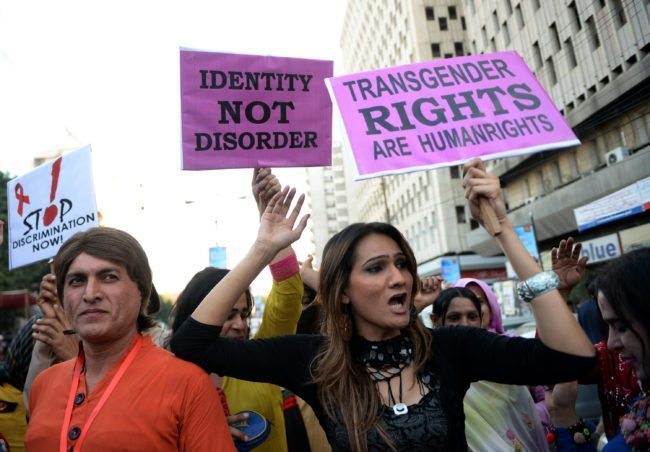Brain scan can tell kids if they’re transgender, study shows

(Pexels)
A brain scan can reveal someone’s true gender, according to a new study.
Both the physical content and actions of a subject’s brain can show that they are transgender, even before they’ve started puberty.
The study, conducted by Dr Julie Bakker at the University of Liège’s Laboratory of Neuroendocrinology, backs up research from March which showed that trans people are born that way.

(ASIF HASSAN/AFP/Getty)
Bakker explained in her study, titled Brain structure and function in gender dysphoria, that the scans’ results corroborated subjects who reported having gender dysphoria.
“We found that hypothalamic responses of both adolescent girls and boys diagnosed with gender dysphoria were more similar to their experienced gender than their birth sex,” she wrote.
The professor said that this “supports the hypothesis of a sex-atypical brain differentiation in these individuals.”

(Pexels)
As well as this finding, Bakker also discovered that the amount of grey matter found in a brain can reveal both male and female subjects’ genders.
She said: “Grey matter volumes of both gender dysphoria groups deviated from the volumetric characteristics of their birth sex towards those of individuals sharing their gender identity.”
Bakker added that these results were exciting.

(Spencer Platt/Getty)
“Although more research is needed, we now have evidence that sexual differentiation of the brain differs in young people with GD, as they show functional brain characteristics that are typical of their desired gender,” she said, according to the Telegraph.
“We will then be better equipped to support these young people, instead of just sending them to a psychiatrist and hoping that their distress will disappear spontaneously.”
Earlier this year, researchers at the University of São Paulo’s Medical School compared the brains of trans and cisgender adults and discovered that they are significantly different.
It was found that the insula – a region of the brain – had a distinct volume depending on whether it was in the brain of a trans or cis subject.

(Scott Olson/Getty)
The insula plays an important role in people’s body image, self-awareness and empathy.
Giancarlo Spizzirri, first author of the study – which was published in Scientific Reports – said that the result led them to believe that people are trans in the womb.
“We found that trans people have characteristics that bring them closer to the gender with which they identify and their brains have particularities, suggesting that the differences begin to occur during gestation,” he said in a statement.
On May 18, the government revealed that the Gender Recognition Act review will launch before the summer.

(Christopher Furlong/Getty)
Theresa May announced plans last year to consult on changes to the Gender Recognition Act to streamline the process that allows transgender people to change their legal gender, after a report called for a ‘self-identification’ system.
Progress on the issue has been plagued by setbacks and hostile media coverage, and the consultation – initially touted to launch in 2017 – has still not materialised.
But Minister for Women Victoria Atkins has now vowed to push ahead with progress on the issue, after attending an event hosted by PinkNews and Stonewall where transgender people spoke about their experiences.

